Le Virunga & BLACK FOODIE Picnic Day: Celebrating African, Caribbean, and Southern Foods Across Canada
August 22nd marks the second installment of BLACK FOODIE Picnic Day. The first Picnic Day took place on July 18th and reached tens of thousands of food enthusiasts, and there is no doubt the second will do even better. Endorsed by Toronto Mayor John Tory and several Black chefs, food bloggers, and business owners, BLACK FOODIE Picnic Day is a worldwide social media campaign that celebrates the versatility and uniqueness of African, Caribbean, and Southern foods as picnic staples.
The campaign showcases not only several easy-to-make recipes and build-your-own menus from Black Businesses for foodies to cook-up or takeout, but also encourages Black foodies to enjoy their favourite Afro-Caribbean dishes in the great outdoors.
“What we’re really trying to do is create an appreciation for Black food through the universally known activity that is the picnic”, explains Ellen Asiedu, Strategy Lead and Producer at BLACK FOODIE.
“While we’ve all eaten outside at one point or another, few outside the Black community know the joys of eating pholourie and pelau warmed over a camp stove at Niagara Falls or suya and mandazi at a park for a church picnic. This campaign helps foodies worldwide tap into the deliciousness of Black food culture through recipes and recommendations for Black-owned restaurants serving these culinary delights”.
By using the hashtag #blackfoodiepicnicday, BLACK FOODIE aims to create a social media movement that highlights Black joy and continues to shift the way Black food culture and Black food businesses are covered in mainstream media.
This second installment of the series will take place on Saturday, August 22, 2020, and the third and final installment on Saturday, September 19, 2020.
BLACK FOODIE is a versatile media platform dedicated to amplifying Black voices and experiences in the food industry, celebrating Black food culture, and empowering foodies around the world through unique initiatives and partnerships with industry leaders.
To bring some light to this initiative and to acknowledge the incredible Black-owned foodservice businesses across Canada, we spoke with restaurateur Zoya de Frias, owner of Le Virunga in Montreal, an intimate pan-African establishment that was “was born out of love for a culture [that is underrepresented in the food industry],” as owner de Frias states.
“The concept was inspired from our many trips to the continent [as well as] my mom’s childhood experiences,” says de Frias. Zoya was born in Kinshasa, DRC to a Congolese/Portuguese mother and an Indian father. She grew up in Belgium until the age of 16 when she moved to Montreal. She opened Le Virunga, alongside her mother, Maria-José de Frias, the brains behind the menu.
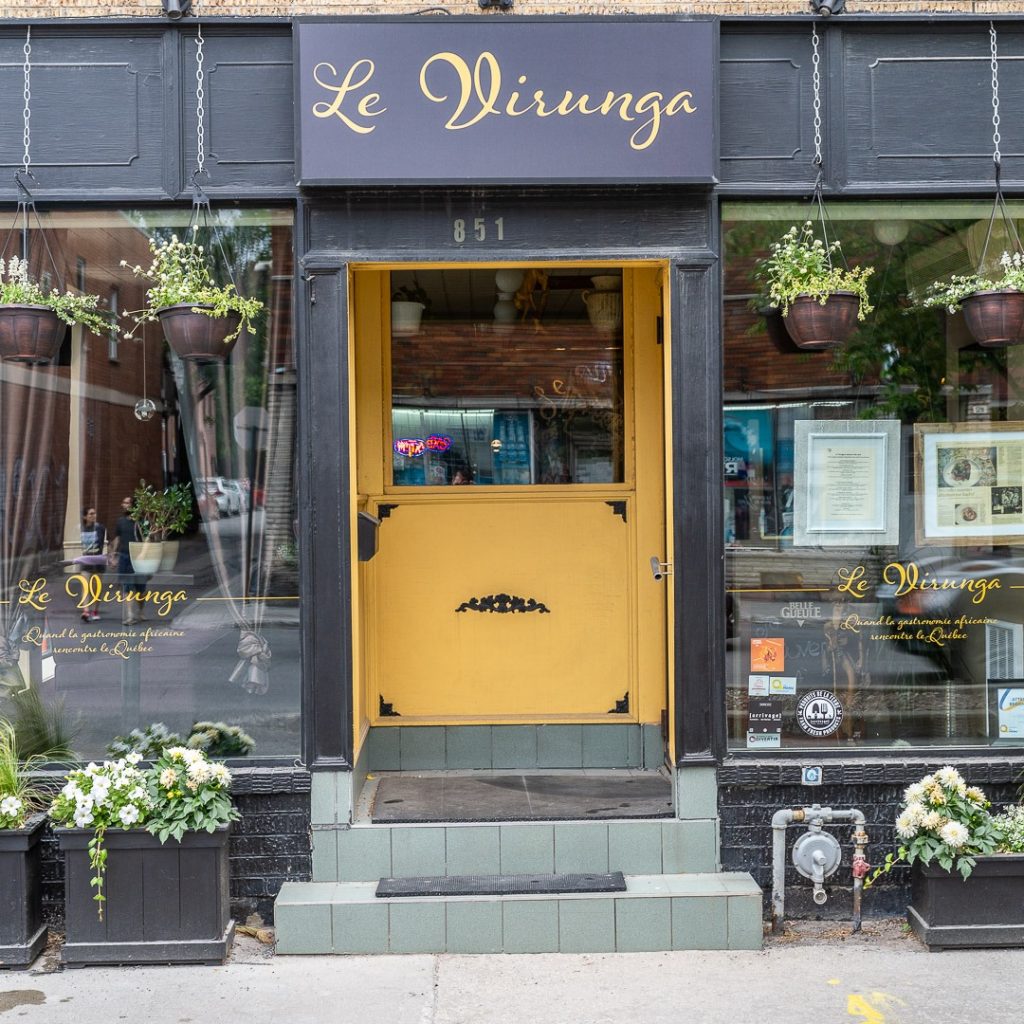
“We are ourselves a product of blended cultures and we wanted our cuisine to blend different parts of the continent with a twist of modernity and creativity. The mission is to show that we are different yet still have so many things in common. Being able to appreciate one another and find beauty and pride in our culture.”
Le Virunga features a small menu that changes seasonally and emphasizes leveraging fresh, local products. “Our main concern in terms of menu choices is keeping it as close as possible to traditional recipes, fun and accessible yet very authentic,” highlights de Frias. “Le Virunga is all about hospitality, receiving guests at the restaurant like we would at home. It is important to us that our guests feel welcomed, guided, and approachable,” she adds.
Le Virunga opened four years ago and “at that time [the] concept was fairly new and very different from any other concept on the market,” as de Frias puts it. “Whether you came from the diaspora or not, the menu has nothing similar to anything that our customers were accustomed to. Therefore, there were a lot of doubts and hesitation whenever a customer walked into the door…”
“We started slowly and gently, but we gained popularity quickly as we tripled our clientele in three months,” says de Frias. “Montreal is the perfect place for our space to grow,” she continues. “It is multicultural, open-minded, energetic, loving, supportive. However, our community is still fairly new on the market, it comes with [lower] visibility at times but [this challenges us to grow and bring ourselves into the spotlight].”
This “lower visibility” is what makes initiatives like BLACK FOODIE Picnic Day so important to the foodservice industry.”African food and culture are underrepresented and there’s a discomfort with our cuisine that you don’t see with Italian, French, and Greek food,” de Frias notes. “A movement like BLACK FOODIE Picnic Day invites everyone to join the party and get to know the diversity of African food a little better. The Picnic Day came at the right moment and the right time and we were so excited to have an opportunity to open the series.”
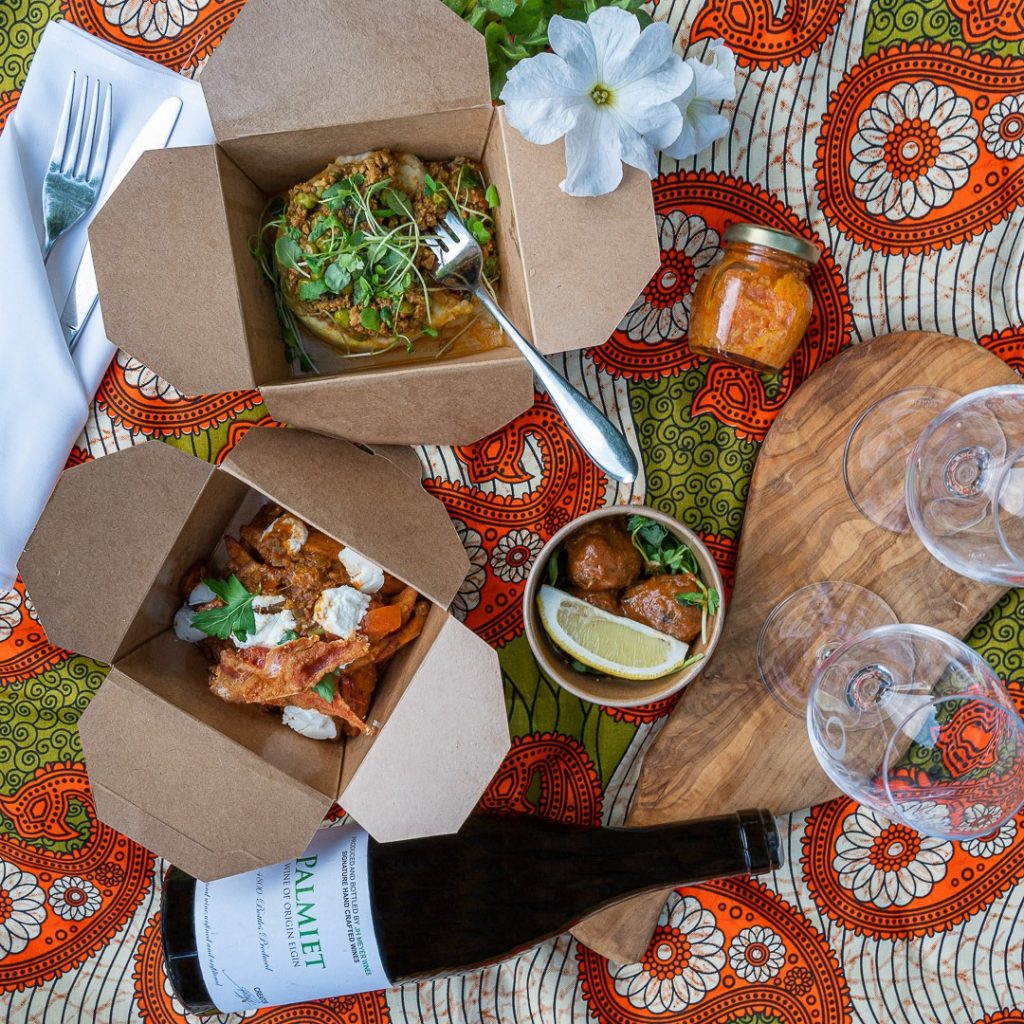
Ideal for BLACK FOODIE Picnic Day, Le Virunga is offering a special picnic package. This took a little work, as their current menu didn’t inherently lend itself to a picnic that usually consists of cold foods. “[I] had no idea on where to start for the [picnic] menu,” says de Frias. “Every other place has sandwiches or salads but we felt that it was important to showcase the fact that African food offers more than those kinds of items, so Chef Maria came up with an ensemble of appetizers that truly reflect the diaspora.” Le Virguna’s picnic menu changes regularly, but will always feature staples like cassava, plantain, flavourful savoury dishes, and bold sweet treats.
Adding to this, Le Virunga is committed to sustainable practices. “Our entire picnic is recyclable and compostable,” explains de Frias. “I believe [that] big or small, our impact on the environment needs to be considered at all times.”
The addition of the picnic menu has been a cornerstone of Le Virunga’s reopening and recovery strategy in response to the COVID-19 pandemic. As lockdown orders came down, the restaurant closed for two months before reopening for takeout only. Currently, the restaurant offers takeout and dine-in and has for the past two weeks. Le Virunga is primarily a fine dining restaurant so adapting to new restrictions and customer habits and tastes was a challenge for them. “…Our focus is really on the presentation and the experience on top of using quality products,” de Frias elaborates. “Our main challenge was to give our products the respect they deserve in a box [but] not being able to have a client’s feedback right away.” The picnic menu has been a way for the team to deliver not just quality products but a unique experience.
Nevertheless, the adjustment has not always been smooth. The Le Virunga team is short-staffed so the workload is heavier than normal. “…[we had to open on one of our days off] just to prep enough food for our opening on the next day. In the future we do hope to be able to hire more staff [to increase the takeout we can do] and be able to balance the workload better,” says de Frias. Like all other restaurants, Le Virunga has had to increase its cleaning and adapt their procedures. This has been added to the responsibilities of the current team, adding to the heavy workload.
To add to their recovery, Le Virunga was able to take advantage of the Canada Emergency Business Account. “It helped us with paying our rent, employees, and what we owed to our suppliers,” points out de Frias. Though this didn’t cover all expenses for them and they still needed to use their personal loans.
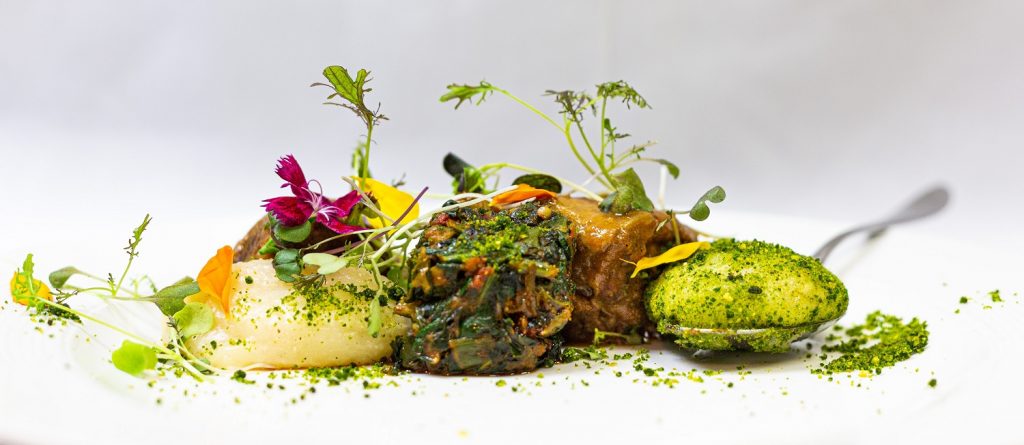
While Le Virunga received help, it was simply not enough and the team is still struggling to “get their heads above water” as de Frias puts it. “The taxes we still have to pay for TPS/TVQ are coming out of our loan,” she explains. On that note, she also highlights that the government needs to take a deeper look at funding “to help minorities build businesses because they do not seem to help a lot of us.”
Most recently, Suzanne Barr’s True True Diner shuttered its doors, and in an Instagram post, she detailed how injustices attributed to her business’ closure. Much like Le Virunga, she called out the much-needed support for Black, Indigenous, POC, and LGBTQIA+ businesses. As we see campaigns like Change Hospitality by former Bar Raval restaurant manager Arianne Persaud emerge in response to decades of injustices within the food industry, business owners and operators must commit to creating workplaces and environments that embrace diversity and inclusivity or risk getting left behind.
Patrons of all generations and ethnicities have a greater appreciation for and an interest in frequenting businesses that reflect the communities they serve, and the ones who welcome this kind of change will do better in the long run.
For the team at BLACK FOODIE, Picnic Day offers an opportunity for those outside of the halls of power to help bring about lasting change in the industry.
“We’re in an especially important moment right now where the food industry must examine how it has nurtured a deep imbalance by highlighting a very limited range of cuisines, voices, and experiences,” notes Asiedu. “We see BFPD as an opportunity for foodies, brands, and organizations to create a ripple effect in the industry that will ultimately change the conversation around Black food culture, create new opportunities for Black foodservice operators, and help open North American palates to the unique flavours we’ve grown up with. There are so many incredible dishes created by chefs like Maria-José that deserve the spotlight. We look forward to working with organizations who can help us push the industry forward.”
BLACK FOODIE Picnic Day also offers an opportunity for companies to get their products and services in front of
a keen, food-focused audience of over 70,000 people through the platform’s social media channels.
For more information on how your organization can get involved in the final edition of the campaign in September, email the team at bookings@blackfoodie.co.



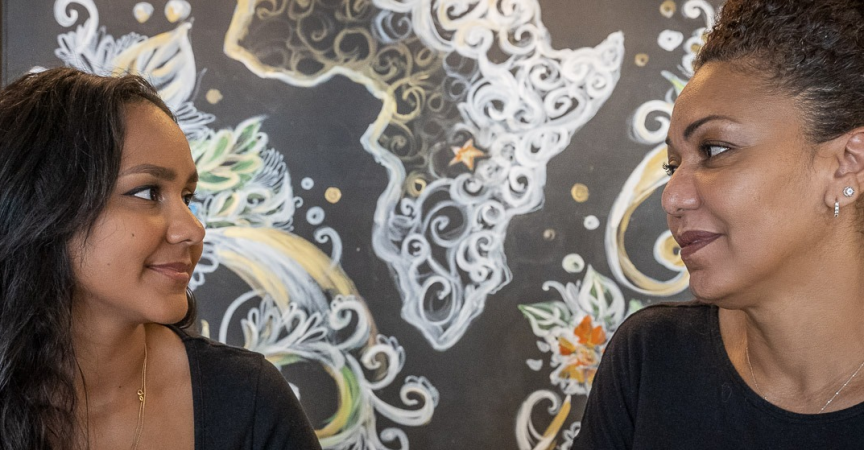


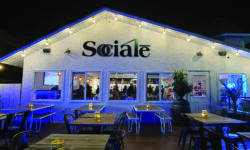
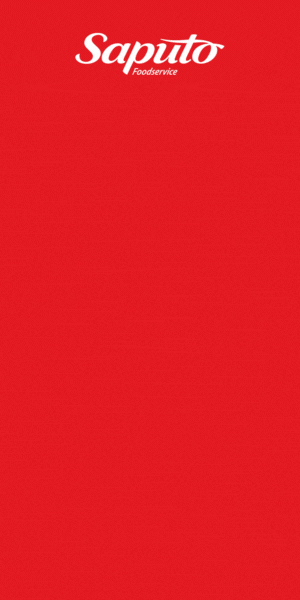
1 Comments